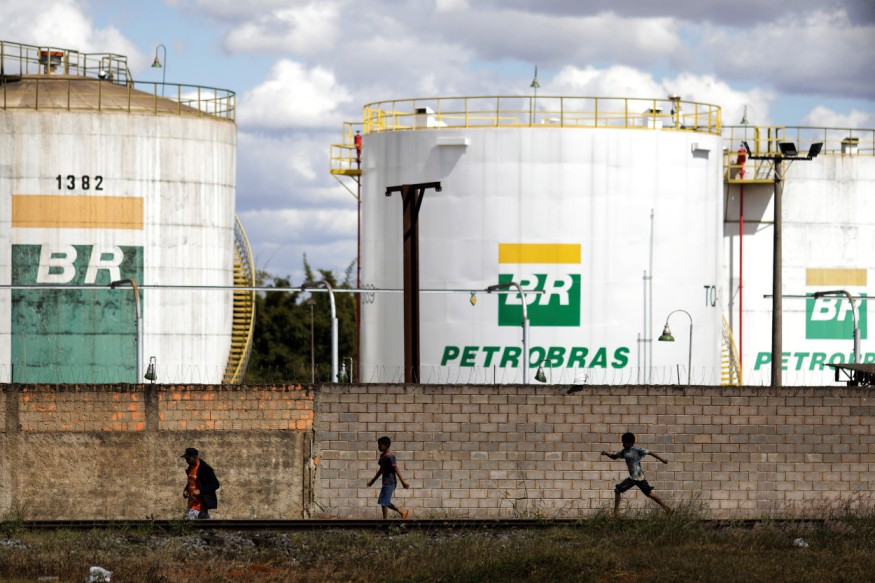Operation Car Wash: A Look at Latin America's Most Controversial Corruption Scandal in History

In 2014, Brazilian authorities uncovered a scandal so big it even involved dozens of elites--including presidents.
Described as one of the biggest corruption scandals in Latin America's history, investigators launched a probe into a multimillion-dollar scheme that initially involved only one man but quickly blew into proportions unimagined. The case rocked the very foundation of the country's system.
It was called Operation Car Wash.
The Beginning
It started after the government launched an infrastructure project in the city of Itaborai. The energy project aimed to build two refineries and one petrochemical plant in a 45 square kilometer plot of land.
The Rio de Janeiro Petrochemical Complex, or COMPERJ, was close to newly-discovered natural gas fields, Santos Basin. The project was estimated to bring in more than 200,000 direct and indirect jobs, leading to a growth in population and businesses in the city.
In 2012, the police began investigating a money laundering scheme where black-market money was secretly being transferred through small-business cover-ups. They placed a local gas station under surveillance, suspecting it to be used for laundering money.
Criminals would bring in black market money, report it as the gas station's earning, and funnel the cash to an offshore account. The process made it hard for authorities to trace the money.
They arrested a known money-launderer and former bon vivant named Alberto Youssef in connection to the crime.
The Discovery
In March 2014, officials offered Youssef a plea deal in exchange for information on the source of the money. He sat in his jail cell and contemplated his decision.
"If I speak," he said, "the republic is going to fall."
To anyone listening, his statement sounded a bit too exaggerated. He started writing down a string of names that shocked his lawyers. Tracy Reinaldet, one of his attorneys, described the revelation as something resembling a monster.
Mr. Youssef began describing the elaborate scheme in detail--a description that would later destabilize the country's government, leaving thousands out of jobs and struggling through the recession.
He revealed he had been laundering money for top executives of the company Petrobras, Brazil's state-owned oil company. Petrobras was the largest oil company in all of Latin America.
The police launched an investigation in 2014, calling it Operation Car Wash. It was discovered several top Petrobras officials collaborated with a group of engineering companies. They aimed to overcharge the oil company for its construction services and labor.
The cartel would play a fake competition for contracts, including servicing an oil rig or building other infrastructures. COMPERJ was initially estimated to cost over $6 billion but was later charged $14 billion.
The engineering company that held most of COMPERJ's contracts then laundered the money to criminals through small businesses like the gas station. They would then funnel some of the funds to bribe business elites and government officials.
The Worker's Party was also dragged into the corruption case after several allegations said they had a part in funneling and buying politicians to help with political campaigns.
Among those cited was former president Luiz Inacio Lula da Silva.
The Aftermath
More than a dozen top executives were arrested for money-laundering. A former Petrobras employee vowed to give back every cent of the bribe he accepted---the entire $100 million. The ruling Workers Party reportedly received than $200 million. Authorities estimated more than $3 billion were funneled as bribes.
More than 117 indictments were issued. Ex-president Lula was sentenced to 20 years. His successor, Dilma Rousseff, was impeached. Her successor, Michel Temer, was charged for his involvement in the corruption.
The ex-CEO of Odebrecht, COMPERJ's leading engineering company, was sentenced to 19 years in prison. Eike Batista, who was once the country's wealthiest man, was sentenced to 30 years.
Over 13,000 workers were laid off, putting a stop on the construction at the petrochemical complex. Many workers were left trying to apply for odd jobs. The massive lay off saw businesses shut down as more and more seats were becoming deserted.
The scandal rippled through the nation. Many projects owned by Petrobras were also forced to stop. The engineering companies who were involved in the scheme also worked on numerous projects across Latin America. By 2016, at least 17 plans were stalled.
A report conducted after the operation estimated 500,000 people lost their jobs in Brazil alone, causing Brazil's unemployment rate to rise.
Today, Itaborai is slowly recovering from the effect of the scandal.
Subscribe to Latin Post!
Sign up for our free newsletter for the Latest coverage!
© 2026 Latin Post. All rights reserved. Do not reproduce without permission.














